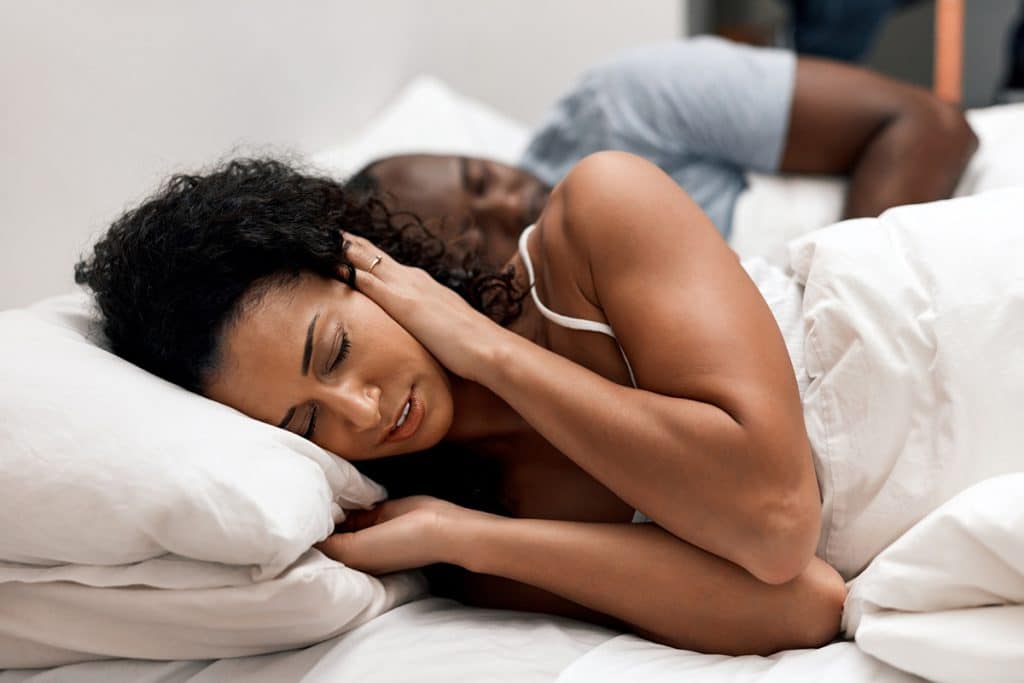How Your Dentist Can Diagnose Sleep Apnea

Sleep apnea is a serious sleep disorder that can result in serious health issues such as high blood pressure, stroke, and even heart failure.
Unfortunately, it’s often difficult to detect, as the symptoms are not always obvious. Thankfully, your dentist can help uncover the signs of sleep apnea and provide you with the care and treatment you need.
With the help of your dentist, you can get a diagnosis and begin treatment to help reduce your symptoms and improve your overall health. By utilizing special tests and technologies, your dentist can help you get to the root of your sleep apnea and take steps to improve your quality of life.
What is Sleep Apnea?
Sleep apnea is a sleep disorder that causes interruptions in breathing during sleep. It is caused by either a physical blockage of the airway or a problem with the signals from the brain that control breathing. It can occur in both adults and children, although it is more common in adults. People with sleep apnea also often snore loudly or gasp for air during the night.
The most common type of sleep apnea is obstructive sleep apnea (OSA), which is caused by a blockage in the airway. This blockage can be caused by excess tissue in the throat or a narrowing of the airway due to the position of the tongue or jaw.
Other types of sleep apnea include central sleep apnea and mixed sleep apnea. Central sleep apnea is caused by a problem with the signals from the brain that control breathing, while mixed sleep apnea is a combination of both obstructive sleep apnea and central sleep apnea.
Symptoms of Sleep Apnea
The most common symptom of sleep apnea is loud snoring. Other symptoms include difficulty staying asleep, waking up frequently during the night, excessive daytime sleepiness, and waking up with a dry mouth or sore throat. People with sleep apnea may also experience headaches, memory problems, mood changes, and difficulty concentrating.
If untreated, sleep apnea can lead to serious health problems such as high blood pressure, stroke, and even heart failure. It can also lead to an increased risk for diabetes, depression, and other mental health issues. For this reason, it is important to seek help from your dentist if you think you may have sleep apnea.
How can a Dentist Help Diagnose Sleep Apnea?
Your dentist can help diagnose sleep apnea by performing an oral examination. During this examination, your dentist will look for signs of sleep apnea such as swollen tonsils, a narrow airway, or enlarged tongue. Your dentist may also use a special camera to examine the inside of your mouth and throat to check for blockages.
Your dentist may also perform special tests such as a sleep study or a polysomnogram. A sleep study is a test that measures your breathing, heart rate, and oxygen levels while you sleep. A polysomnogram is a more detailed test that measures your breathing, brain activity, and other vital signs during sleep. These tests can help your dentist determine if you have sleep apnea and what type of sleep apnea you have.
Tests and Technologies Used to Diagnose Sleep Apnea
Your dentist may also utilize special tests and technologies to further diagnose and monitor your sleep apnea. These tests and technologies include home sleep apnea tests, pulse oximetry, and continuous positive airway pressure (CPAP) machines.
Home sleep apnea tests are used to measure your breathing and oxygen levels during sleep. These tests are usually done in the comfort of your own home and are usually more convenient than a sleep study. Pulse oximetry is a test that measures your oxygen levels in the blood. This test can be used to determine if your oxygen levels are low during sleep, which can be an indication of sleep apnea.
Continuous positive airway pressure (CPAP) machines are used to help people with sleep apnea breathe more easily during sleep. These machines use a series of tubes and a mask to deliver a steady stream of air to the lungs. CPAP machines can help reduce snoring and improve sleep quality.
How Your Dentist Can Help Treat Sleep Apnea
Once your dentist has diagnosed your sleep apnea, they can help you find a treatment plan that works for you. Your dentist may recommend lifestyle changes such as avoiding alcohol and caffeine before bed, quitting smoking, and avoiding sleeping on your back.
Your dentist may also recommend a dental device such as a custom-fitted oral appliance or a mandibular repositioning device. These devices can help keep the airway open while you sleep and reduce the symptoms of sleep apnea.
In addition to lifestyle changes and dental devices, there are other treatments available for sleep apnea. Surgery is an option for some people with sleep apnea. Surgery can help remove excess tissue in the throat or repair damaged tissue. Other treatments for sleep apnea include weight loss, positional therapy, and CPAP machines.
Weight loss can help reduce the severity of sleep apnea. Positional therapy can help reduce the symptoms of sleep apnea by teaching you how to sleep in a different position. Finally, CPAP machines can help reduce snoring and improve sleep quality.
Sleep Apnea & Snoring Treatment in Albertson
If you have been diagnosed with sleep apnea, there are a few things you can do to help manage your symptoms. First, make sure to stick to your treatment plan. This includes following your dentist’s instructions for using any dental device, following a healthy lifestyle, and using a CPAP machine if prescribed.
Sleep apnea is a serious sleep disorder that can lead to serious health problems. Fortunately, your dentist can help diagnose and treat sleep apnea. To learn more, contact us today at 516-877-2737.

